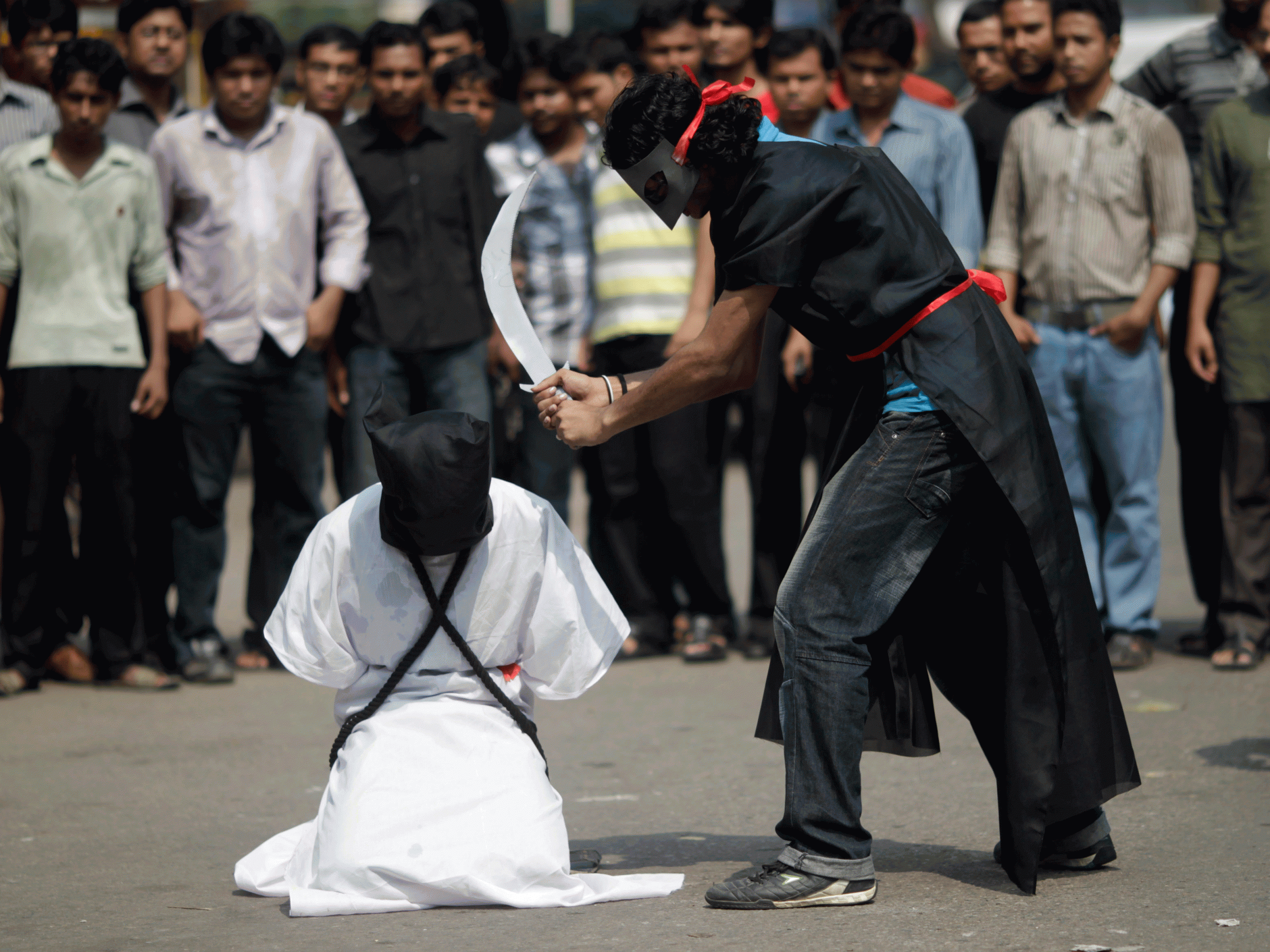Outcry as Saudi Arabia executes six people in one day to bring 2017 death penalty total to 44
Largest number of capital punishments carried out in single day so far this year

Your support helps us to tell the story
From reproductive rights to climate change to Big Tech, The Independent is on the ground when the story is developing. Whether it's investigating the financials of Elon Musk's pro-Trump PAC or producing our latest documentary, 'The A Word', which shines a light on the American women fighting for reproductive rights, we know how important it is to parse out the facts from the messaging.
At such a critical moment in US history, we need reporters on the ground. Your donation allows us to keep sending journalists to speak to both sides of the story.
The Independent is trusted by Americans across the entire political spectrum. And unlike many other quality news outlets, we choose not to lock Americans out of our reporting and analysis with paywalls. We believe quality journalism should be available to everyone, paid for by those who can afford it.
Your support makes all the difference.Saudi Arabia executed six people for murder and drug offences on Monday, thought to be the highest number in a single day since the year began.
The deaths are thought to bring the number of executions claimed by the government so far in 2017 to 44.
A Pakistani man was killed for drug trafficking and five Saudi nationals were killed for homicide, the interior minister said.
The kingdom has one of the highest execution rates in the world, handing down the death penalty for terror, murder, rape, armed robbery and drug trafficking crimes.
In 2014, Saudi Arabia executed a record number of 158 people. Last year, it executed 153 people, a slight decrease.
A June report by human rights organisation Reprieve found that 41 per cent of those executed in Saudi Arabia in 2017 were killed for non-violent acts such as attending political protests.
The group said it was concerned migrant workers in the country were being tricked into smuggling drugs and then executed.
At least 23 per cent of death sentences for drug offences in the oil-rich country are Pakistanis, according to analysis by Reprieve.
In May 2017 – following a visit from President Donald Trump – a Saudi criminal court upheld several death sentences handed down to protestors, including disabled man Munir Adam.
UN experts have called for an end to executions for non-violent offences, but authorities claim the death penalty acts as a useful deterrent to criminals.
In 2016, Ridyadh claimed the execution of a royal, Prince Turki Bin Saud Al-Kabir showed it cared about "security, justice and safety for all".
The most common form of execution in the kingdom, which enforces ultra-conservative Islamic laws, are beheadings with a sword.
Join our commenting forum
Join thought-provoking conversations, follow other Independent readers and see their replies
Comments